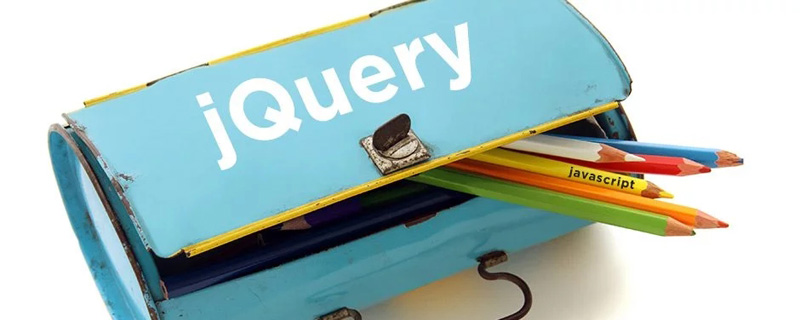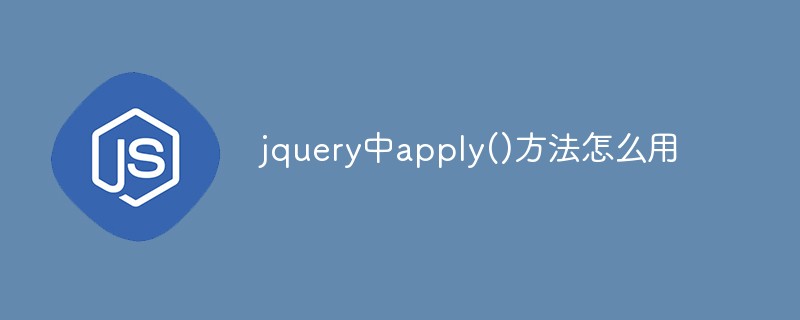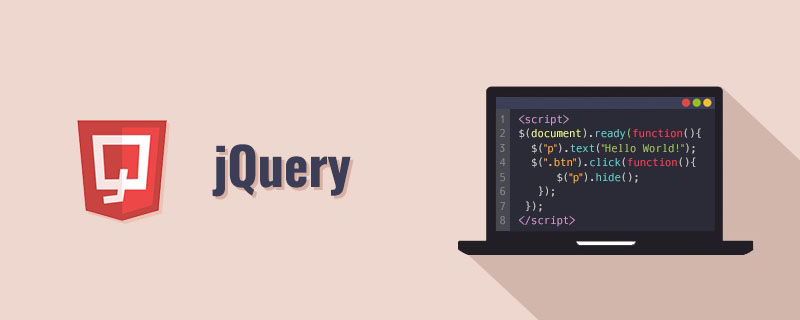1.$(document).ready()
##$(document).ready() is the response in jQueryJavaScriptA typical way to use the built-in onload event and perform tasks. It has a similar effect to onload. But there are some differences: When a document is completely downloaded into the browser, the window.onload event will be triggered. The
event handler program registered using $(document).ready() will be able to run after the html download is completed and parsed into a Dom tree, but it does not mean that all associated files have been downloaded. . There is generally only one onload event handler in a page, and it can only save a
reference to one function at a time; while $(document).ready() can have multiple. Generally speaking $(document).ready() is better than using onload event handler. However, if the associated file has not been loaded, there will be problems in calling attributes
such as image height and width, so you need to choose the appropriate method at different times.
$(document).ready()有三种写法,分别是:
> $(document).ready(function() {
//this is the coding...
});
>$().ready(function() {
//this is the coding...
});
>$(function() {
//this is the coding...
});2. Event capture and event bubbling
Event capture: A strategy that allows multiple elements to respond to events. During the event capture process, the event is first handed to the outermost element, and then to more specific elements. Event bubbling: Another opposite strategy is called time bubbling. When an event occurs, it will be sent to the most specific element first. After this element gets a chance to respond, the event will bubble up to more general elements. . Event bubbling can sometimes have side effects, leading to unexpected behavior.
3. Three ways to prevent event bubbling
Specify the default operation By calling the .preventDefault() method, the event can be terminated before the default operation is initiated.
Call event.stopPropagation() to stop event propagation
jQuery provides a .stopPropagation() method, which can completely prevent event bubbling. The example code is as follows:
Use the stopPropagation() method to prevent the event from bubbling
$(document).ready(function() {
$('switcher').click(function(event){
if(this.id == 'switcher-narrow'){
$('body').addClass('narrow');
}
else if(this.id == 'switcher-large'){
$('body').addClass('large');
}
$('switcher .button').romoveClass('selected');
$(this).addClass('selected');
event.stopPropagation();
};)
});Use the event.tatget attribute to clarify the event
Object In the event handler The variable event holds the event object. The event.tatget attribute stores the target element where the event occurred. This attribute is specified in the DOM API, but is not implemented by all browsers. jQuery makes the necessary extensions to this event object so that this property can be used in any browser. Through .target, you can determine the element in the DOM that first received the event. Moreover, we know that this refers to the DOM element that handles the event. Use the event.tatget attribute to clarify the event object and prevent the event from bubbling. The code is as follows:
$(document).ready(function() {
$('switcher').click(function(event){
if(event.target == this)
{
$('switcher .button').toggleClass('hidden');
}
};)
});4. Commonly used event binding
jQuery uses the .bind() method Bind events to elements and unbind them using the .unbind() method. Moreover, the .bind() method can perform multiple bindings. If there is no binding, it is safe when unbinding. Many times an event only needs to be triggered once, and then it must be unbound immediately. According to the traditional approach, we may first bind the event, and then unbind it after the event is executed. jQuery provides us with a shorthand method.one to specifically solve the tedious code writing in the above scenario. The example is as follows:
$(document).ready(function(){
$('#swotcjer').one('click',toggleStyleSwitcher);
});5. Compound event
In progress event When capturing, it is often necessary to capture combined user operations and respond with multiple functions. These events are called composite events.
The .read() method provided by jQuery is one of the most commonly used event-compliant methods. In addition, there are two functions used for interactive processing: .hover(over,out) A method that simulates hover events (the mouse moves over and out of an object). This is a custom method that provides a "keep in it" state for frequently used tasks.
.toggle(fn,fn) Toggles the function to be called each time it is clicked.
The above is the detailed content of Summary of usage examples of some common event functions in jQuery. For more information, please follow other related articles on the PHP Chinese website!
 jquery实现多少秒后隐藏图片Apr 20, 2022 pm 05:33 PM
jquery实现多少秒后隐藏图片Apr 20, 2022 pm 05:33 PM实现方法:1、用“$("img").delay(毫秒数).fadeOut()”语句,delay()设置延迟秒数;2、用“setTimeout(function(){ $("img").hide(); },毫秒值);”语句,通过定时器来延迟。
 axios与jquery的区别是什么Apr 20, 2022 pm 06:18 PM
axios与jquery的区别是什么Apr 20, 2022 pm 06:18 PM区别:1、axios是一个异步请求框架,用于封装底层的XMLHttpRequest,而jquery是一个JavaScript库,只是顺便封装了dom操作;2、axios是基于承诺对象的,可以用承诺对象中的方法,而jquery不基于承诺对象。
 jquery怎么修改min-height样式Apr 20, 2022 pm 12:19 PM
jquery怎么修改min-height样式Apr 20, 2022 pm 12:19 PM修改方法:1、用css()设置新样式,语法“$(元素).css("min-height","新值")”;2、用attr(),通过设置style属性来添加新样式,语法“$(元素).attr("style","min-height:新值")”。
 jquery怎么在body中增加元素Apr 22, 2022 am 11:13 AM
jquery怎么在body中增加元素Apr 22, 2022 am 11:13 AM增加元素的方法:1、用append(),语法“$("body").append(新元素)”,可向body内部的末尾处增加元素;2、用prepend(),语法“$("body").prepend(新元素)”,可向body内部的开始处增加元素。
 jquery怎么删除div内所有子元素Apr 21, 2022 pm 07:08 PM
jquery怎么删除div内所有子元素Apr 21, 2022 pm 07:08 PM删除方法:1、用empty(),语法“$("div").empty();”,可删除所有子节点和内容;2、用children()和remove(),语法“$("div").children().remove();”,只删除子元素,不删除内容。
 jquery中apply()方法怎么用Apr 24, 2022 pm 05:35 PM
jquery中apply()方法怎么用Apr 24, 2022 pm 05:35 PM在jquery中,apply()方法用于改变this指向,使用另一个对象替换当前对象,是应用某一对象的一个方法,语法为“apply(thisobj,[argarray])”;参数argarray表示的是以数组的形式进行传递。
 jquery on()有几个参数Apr 21, 2022 am 11:29 AM
jquery on()有几个参数Apr 21, 2022 am 11:29 AMon()方法有4个参数:1、第一个参数不可省略,规定要从被选元素添加的一个或多个事件或命名空间;2、第二个参数可省略,规定元素的事件处理程序;3、第三个参数可省略,规定传递到函数的额外数据;4、第四个参数可省略,规定当事件发生时运行的函数。
 jquery怎么去掉只读属性Apr 20, 2022 pm 07:55 PM
jquery怎么去掉只读属性Apr 20, 2022 pm 07:55 PM去掉方法:1、用“$(selector).removeAttr("readonly")”语句删除readonly属性;2、用“$(selector).attr("readonly",false)”将readonly属性的值设置为false。


Hot AI Tools

Undresser.AI Undress
AI-powered app for creating realistic nude photos

AI Clothes Remover
Online AI tool for removing clothes from photos.

Undress AI Tool
Undress images for free

Clothoff.io
AI clothes remover

AI Hentai Generator
Generate AI Hentai for free.

Hot Article

Hot Tools

SAP NetWeaver Server Adapter for Eclipse
Integrate Eclipse with SAP NetWeaver application server.

MinGW - Minimalist GNU for Windows
This project is in the process of being migrated to osdn.net/projects/mingw, you can continue to follow us there. MinGW: A native Windows port of the GNU Compiler Collection (GCC), freely distributable import libraries and header files for building native Windows applications; includes extensions to the MSVC runtime to support C99 functionality. All MinGW software can run on 64-bit Windows platforms.

VSCode Windows 64-bit Download
A free and powerful IDE editor launched by Microsoft

MantisBT
Mantis is an easy-to-deploy web-based defect tracking tool designed to aid in product defect tracking. It requires PHP, MySQL and a web server. Check out our demo and hosting services.

mPDF
mPDF is a PHP library that can generate PDF files from UTF-8 encoded HTML. The original author, Ian Back, wrote mPDF to output PDF files "on the fly" from his website and handle different languages. It is slower than original scripts like HTML2FPDF and produces larger files when using Unicode fonts, but supports CSS styles etc. and has a lot of enhancements. Supports almost all languages, including RTL (Arabic and Hebrew) and CJK (Chinese, Japanese and Korean). Supports nested block-level elements (such as P, DIV),






